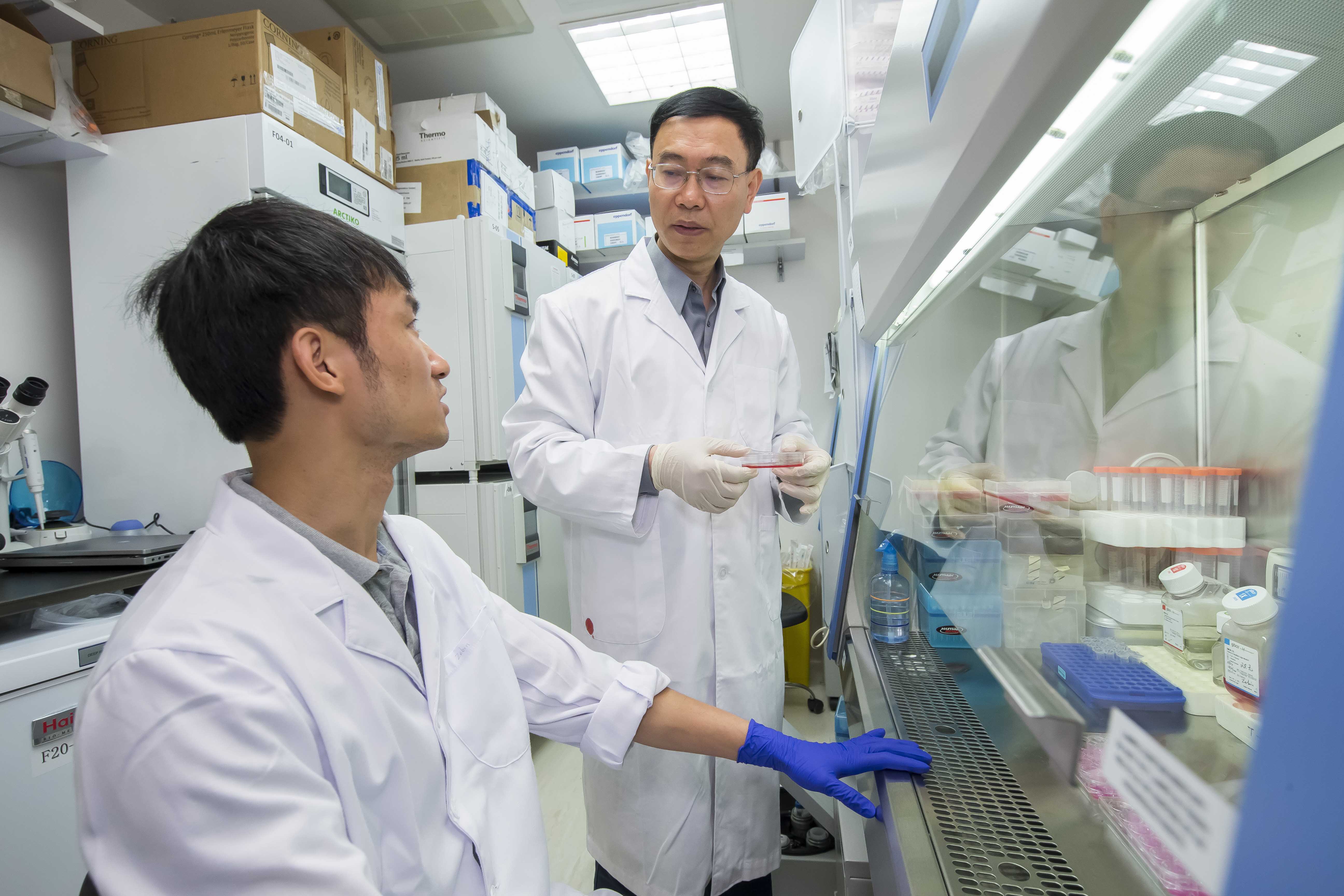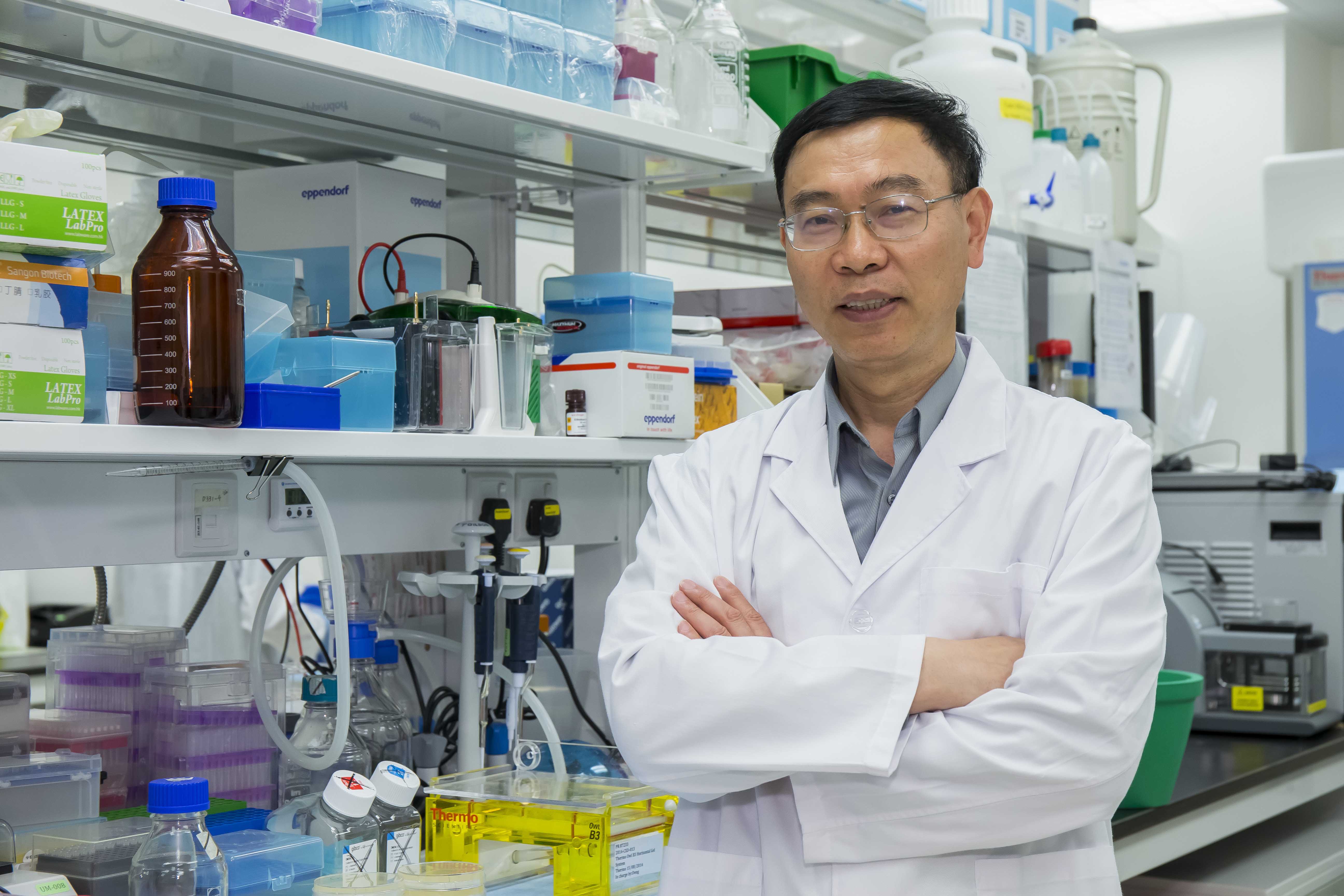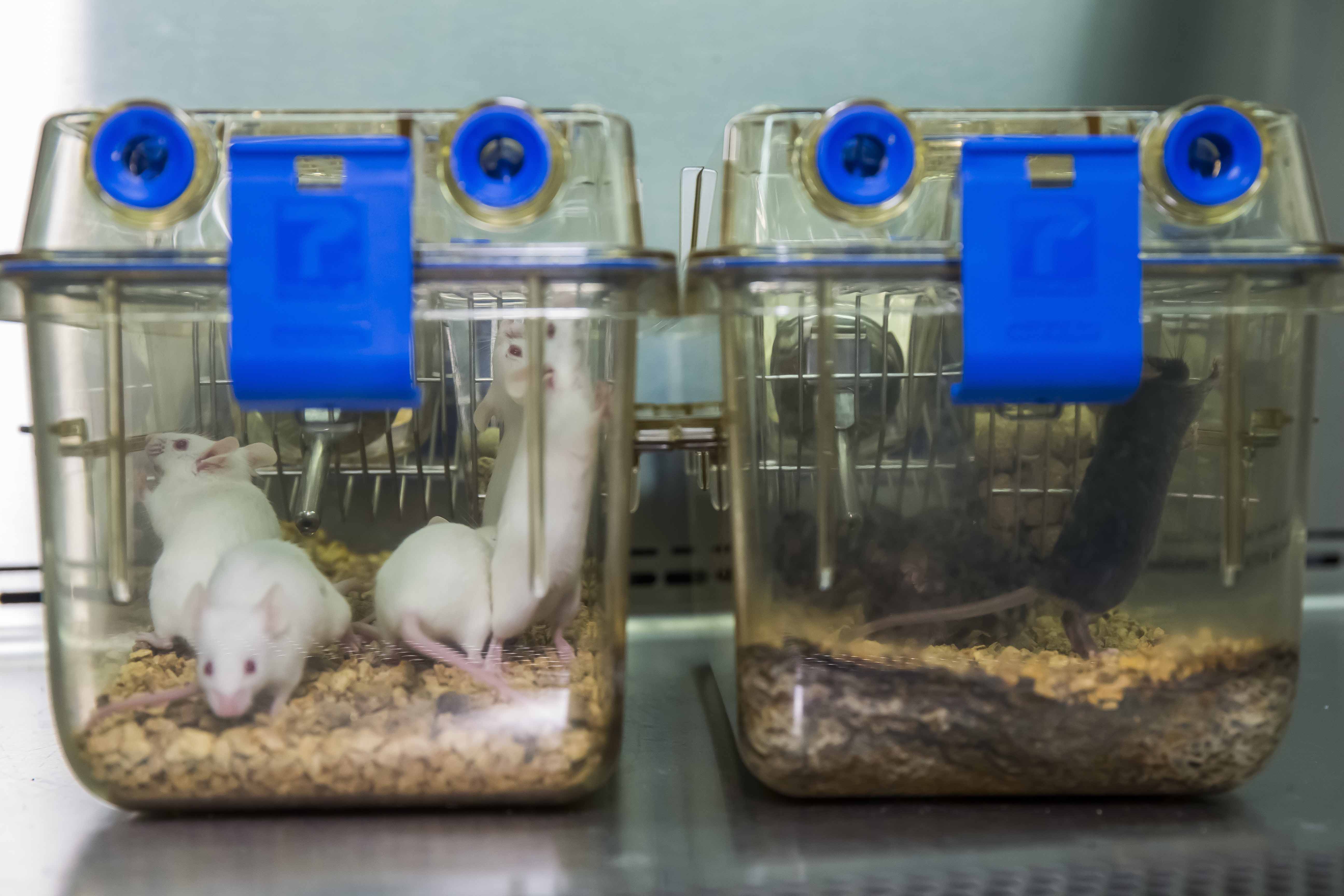Source: umagazine
Every year cancer claims millions of lives worldwide, making it one of the leading causes of human deaths. Cancer research is closely related to human health. However, research in this area is lacking in Macao. In an effort to fill the gap, the University of Macau (UM) founded the Faculty of Health Sciences (FHS) in 2013. The long-term objective of the FHS is to become a leading research and teaching institution in disease-related biological, translational, and medical research, with focus on cancer research. Since taking up office as the dean of the FHS last year, Prof Chuxia Deng, a world-renowned cancer expert, and his team have carried out research in precision medicine tailored to the cancer characteristics and physical characteristics of patients in Macao. In this article we interview Prof Deng about his team’s research efforts and state-of-the-art facilities.
The First 5-Year Plan
The FHS has established its first five-year plan. ‘We hope to develop an outstanding research team of 60 principal researchers within the first five years,’ Prof Deng says. To improve research capacity, the FHS plans to establish five research centres and one research institute, namely the Cancer Centre; the Centre of Reproduction, Development & Ageing; the Centre of Immunology and Infectious Diseases; the Centre of Molecular Medicine; the Centre of Neurodegenerative Diseases; and the Institute of Translational Medicine.
Prof Deng is an expert on cancer and metabolic diseases, cancer and ageing, cancer stem cells, and the breast cancer susceptibility gene, BRCA1. He was a senior investigator of the Senior Biomedical Research Service at the United States National Institutes of Health, chief of the Mammalian Genetics Section at the United States National Institute of Diabetes and Digestive and Kidney Diseases (NIDDK), and tenure-track investigator of the NIDDK. After joining UM, Prof Deng identified cancer as one of the key areas of research for the FHS and served as the head of the Cancer
Centre. ‘The Cancer Centre will focus on signal transduction and carcinogenesis; cancer genetics, epigenetics, and epidemiology; cancer initiation, progression, and metastasis; development, metabolism, and ageing; cancer drug screening and development; and cancer prevention and therapy.
Tailor Research to Cancer Characteristics in Macao
According to the Annual Report of Macao Cancer Registry 2012 released by the Macao Health Bureau, cancer tops the list of the ten leading causes of death in Macao, accounting for 37 per cent of all deaths in the city. According to data collected through the cancer registration system in Macao, registered new cancer cases and deaths from cancers in 2012 were 1,395 and 652 respectively. Among the registered new cancer cases in men, the top three common cancer sites were lung, colon or rectum, and prostate. The top three common cancer sites in women were breast, lung, and colon or rectum, showing that breast cancer has become the most common cause of death from cancer for women in Macao. Breast cancer is Prof Deng’s key research interest, and here at UM he and his team will continue to carry out precision medicine research in this area tailored to the cancer characteristics and physical characteristics of patients in Macao. ‘We will also carry out research on other common cancers in Macao, such as colon cancer, lung cancer, liver cancer, nasopharyngeal cancer, and gastric cancer, and other important areas,’ says Prof Deng. ‘We will develop personalised treatment strategies for common cancers and share the fruit of our research with local hospitals in order to help reduce cancer-related mortality in Macao.’
State-of-the-Art Research Facilities
The FHS’s research areas are closely related to public health, but because cancer research is lacking in Macao, the FHS is establishing a state-of-the-art infrastructure with ten core facilities to aid research activities. The ten core facilities are the Animal Facility, the Bioimaging Core, the Drug Development Core, the Genomics & Bioinformatics Core, the Histopathology Core, the Induced Pluripotent Stem Cells Core, the Metabolomics Core, the Proteomics Core, the Single Cell & Gene Expression Analysis Core, and the Transgenic & Knockout Core. ‘Each core provides state-of-the-art equipment and expert advice for researchers in the faculty. This will greatly support innovative research and benefit research activities in the faculty,’ says Prof Deng.
Help to Improve Medical Service Quality in Macao
Furthermore, to nurture research in biomedical sciences in Macao and to effectively utilise resources, the FHS plans to establish a Macau Core Facility for Biomedical Sciences to coordinate the operation and activities of all the core facilities. ‘The long-term goal of this unit is to expand the service beyond the users in the faculty and the university and to cater to the research needs of other research institutions in Macao,’ says Prof Deng.
There is no shortage of doctors in Macao, but these doctors need to go through re-training to become outstanding specialists. The FHS plans to assist in the training of medical specialists so as to improve the overall quality of medical service in Macao. ‘We plan to establish a training centre to train medical specialists for the local community,’ Prof Deng says. ‘If everything goes according to plan, the training centre should be available in 2016, and our hope is to start providing training in 2017.’
Operation of the Animal Facility Meets International Standards
Using mice in experiments is an indispensable part of cancer research. Working in the United States, Prof Deng confirmed through experiments with mice that SIRT2, which belongs to the sirtuin family of proteins, is an important tumour suppressor, and that SIRT2 abnormalities can cause gender-specific tumours, thus identifying a new family of cancer suppressors. Many mice in the Animal Facility travelled from the United States with Prof Deng. ‘The current temporary facility houses 15,000 mice, and when the permanent vivarium of 3,000 square metres is available in 2016, it will be able to house approximately 100,000 mice, 5,000 rats, 500 guinea pigs, and 300 rabbits,’ says Prof Deng. All procedures in the Animal Facility, including husbandry, basic manipulations, and invasive procedures, are performed according to standard operating procedures meeting international standards. The Animal Facility is also equipped with instruments to support in-house biochemical and hematological analyses that allow swift responses to disease outbreak in the vivariums. The technical staff of the facility consists of veterinarians and animal health technicians with rich experience in handling small research animals.

Prof Chuxia Deng (right) and his research team plan to carry out precision medicine research tailored to the physical characteristics and cancer characteristics of patients in M

Prof Chuxia Deng says the FHS plans to establish a training centre to help train medical specialists for the local community

33742-81359
